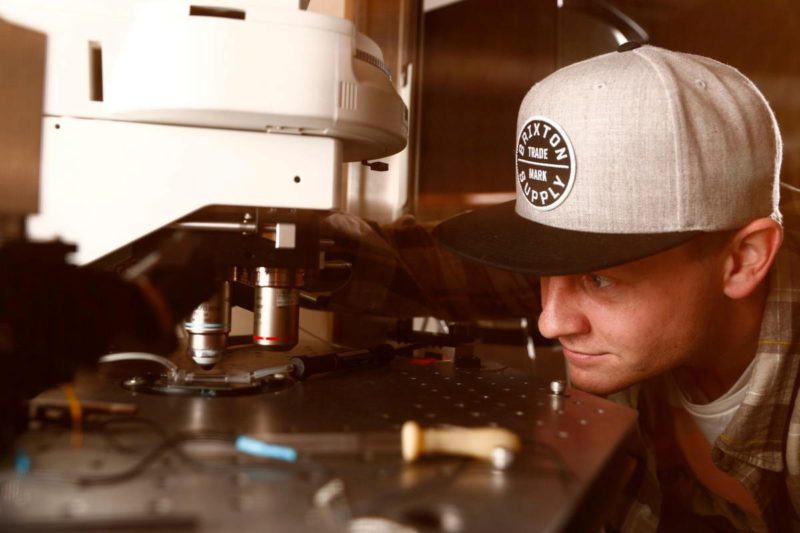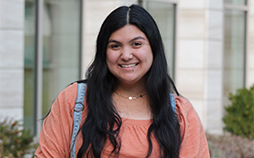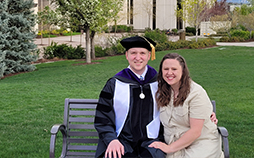ADEPTly Boosting Young Adult Health
Emily Dana wants to help others, and she says researching how parental support affects the mental health of children is a perfect fit for her.
November 2016

Opioid overdose kills more people every month in the state of Utah than car crashes or homicides. David Matthews, a neuroscience student, has made it his life goal to help people overcome addiction.
“My dream is to understand the science of addiction and then use what I have learned to create an addiction-treatment facility where I can help,” he says.
Matthews’s desire to help people with addictions comes from his own story: he lost his father to painkiller addiction in 2003. His father was prescribed opioids after tearing his ACL. With ongoing pain and mounting pressure to provide for his family, Matthews’s father became addicted to the painkillers.
In high school Matthews wrote a poem, “The Piano Man,” about his experience. Matthew Gowdy, a close friend of Matthews, later produced the poem as a video that has been used by local drug-prevention organizations. “The video got really good feedback, and I realized I had done something to help with the problem of addiction,” Matthews says. “Feeling that satisfaction, I realized I want to do it for the rest of my life.”
At BYU, Matthews is working in a research lab where he is mentored by psychology professor Scott Steffensen. “Working with Professor Steffensen,” Matthews says, “I have been able to go to conferences, speak with keynote speakers after their presentations, and network.”
Matthews received an Office of Research and Creative Activities grant. He also gave a presentation at a neuroscience symposium in Snowbird, Utah. Matthews is preparing for another symposium—the largest neuroscience convention in North America—that will be hosted by the Society for Neuroscience and be held in San Diego.
“David is doing a fantastic job,” Steffensen says. “We try to reward those who are really highly engaged, and he is.”
One of the experiments Matthews has been working on is examining brain neurons through “patch clamping”—entering specific types of drugs into a cell with a pipette to measure the electrical activity of that cell. “When the brain is exposed to alcohol or a certain drug, it acts in a certain way,” Matthews says. “Hopefully, understanding this will help us better understand addiction.”
Matthews is planning on getting a doctoral degree after graduating from Brigham Young University. He already has his sights set on a couple of universities in Texas offering PhD/MBA joint-degree programs.
“I’ve been really blessed to go to BYU,” he says. “I’m trying to make it all happen, and my work at BYU is definitely opening doors for me.”

Emily Dana wants to help others, and she says researching how parental support affects the mental health of children is a perfect fit for her.

Ryan Cheney actively networks for worldwide religious freedom and plans to advocate for that freedom throughout his professional law career.

The end goal of a BYU education, James Lee says, is to give students chances to apply what they’ve learned. For him, that happened at the Simmons Center for Cancer Research.